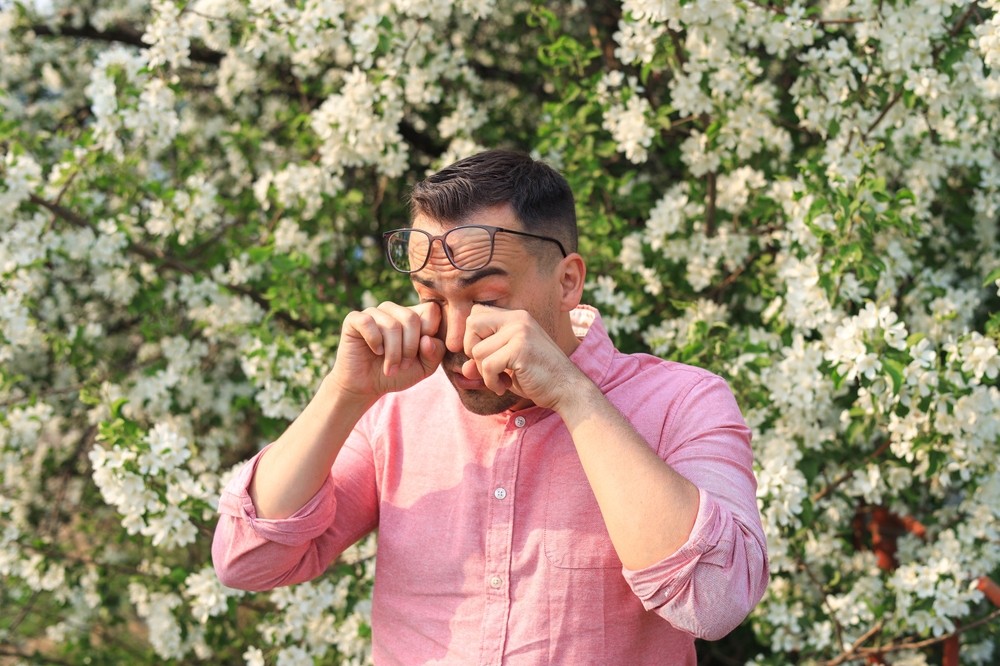
Seasonal allergies are a common occurrence for many people, causing a variety of uncomfortable symptoms. One of these symptoms is dry eyes. Dry eye occurs when there is a lack of sufficient moisture and lubrication on the surface of the eyes, leading to irritation and discomfort. Seasonal allergies can exacerbate dry eye symptoms, making it important to understand the connection between the two.
Seasonal allergies, also known as hay fever or allergic rhinitis, are typically triggered by certain allergens that are present during specific times of the year. These allergens can include pollen from trees, grasses, and weeds, as well as mold spores. When these allergens come into contact with the eyes, they can trigger an allergic reaction, causing the eyes to become red, itchy, and watery. This allergic response can also disrupt the normal tear production and distribution process, leading to dry eyes.
Symptoms of Dry Eyes Caused by Seasonal Allergies
Dry eyes caused by seasonal allergies can present with a range of symptoms. These symptoms may vary in severity from person to person and can include:
- Redness and itching: The eyes may appear bloodshot and feel itchy, leading to frequent rubbing and further irritation.
- Watery eyes: Paradoxically, dry eyes can trigger excessive tearing as the body tries to compensate for the lack of moisture. This can result in a constant watery discharge.
- Burning and stinging: The eyes may feel a burning or stinging sensation, which can be quite uncomfortable.
- Blurred vision: Dry eyes can cause temporary blurred vision, making it difficult to focus and see clearly.
- Sensitivity to light: Dry eyes can make the eyes more sensitive to light, causing discomfort in bright environments.
If you are experiencing these symptoms during allergy season, it is likely that your dry eyes are being triggered by seasonal allergies.
Tips for Managing Dry Eyes During Allergy Season
While it may not be possible to completely eliminate dry eye symptoms caused by seasonal allergies, there are several strategies that can help manage and alleviate the discomfort:
- Avoid allergens: Try to minimize your exposure to allergens by staying indoors when pollen counts are high, keeping windows closed, and using air purifiers to filter the air.
- Use artificial tears: Over-the-counter artificial tear drops can provide temporary relief by lubricating the eyes and reducing dryness. Look for preservative-free options for sensitive eyes.
- Stay hydrated: Drinking plenty of water can help maintain overall hydration, including the moisture levels in your eyes.
- Consider allergy medication: If your seasonal allergies are severe, your doctor may recommend antihistamines or other allergy medications to help control your symptoms and reduce the likelihood of dry eyes.
By implementing these tips, you can better manage your dry eyes and reduce the impact of seasonal allergies on your eye health.
When to See an Optometrist for Dry Eyes Related to Seasonal Allergies
While self-care measures can often provide relief from dry eyes caused by seasonal allergies, there are instances when it is important to seek professional help. If your dry eye symptoms are not improving with self-care measures or if they are becoming increasingly severe, it is important to consult an optometrist for a proper evaluation.
Additionally, if you have pre-existing eye conditions, such as chronic dry eye or ocular allergies, it is crucial to consult with your optometrist to ensure proper management and prevent any complications. Prescription medications or specialized treatments may be necessary to effectively manage dry eyes caused by seasonal allergies. Your optometrist can provide the appropriate recommendations and interventions tailored to your specific needs.
Find Dry Eye Relief at San Marcos Vision Center Today
By understanding the connection between seasonal allergies and dry eye, recognizing the symptoms, and implementing effective management strategies, you can find relief and minimize the discomfort experienced during allergy season. However, if your dry eye symptoms persist or worsen, it is important to seek the expertise of an optometrist who can provide personalized care and treatment options to alleviate your symptoms.
To learn more on seasonal allergies and dry eye or for further guidance on treatment options, visit San Marcos Vision Center in our San Marcos, Texas, office. Call (512) 890-0660 to schedule your appointment today.

 Specialty Contacts
Specialty Contacts Refer A Patient
Refer A Patient





